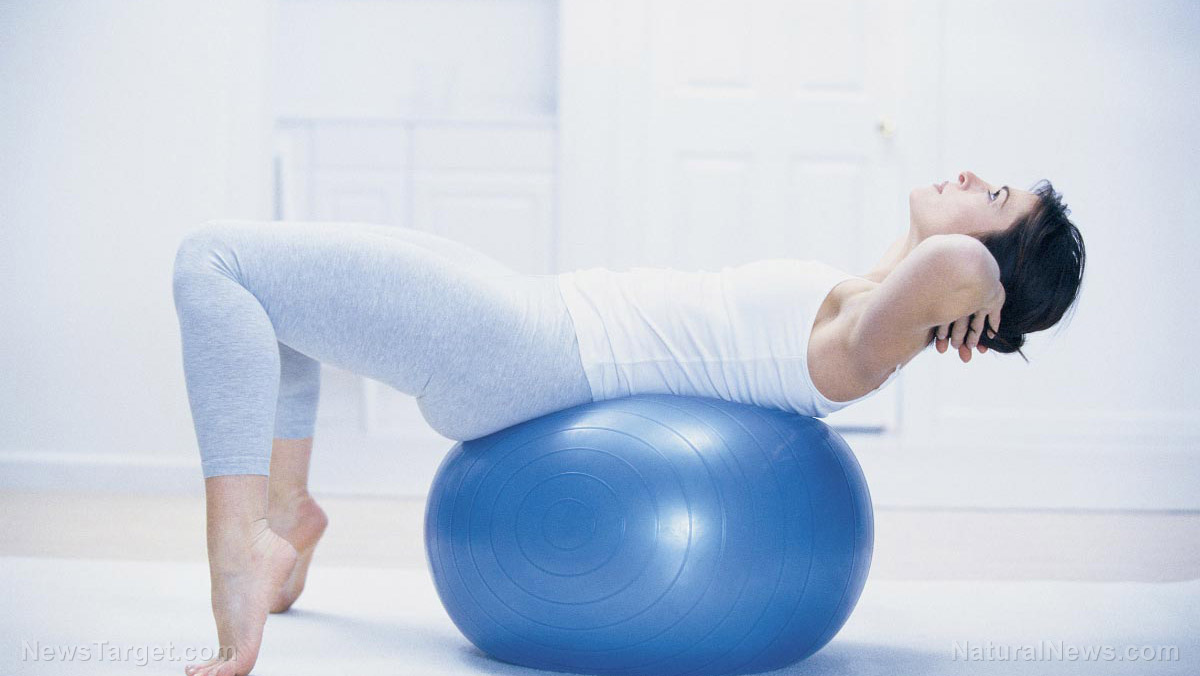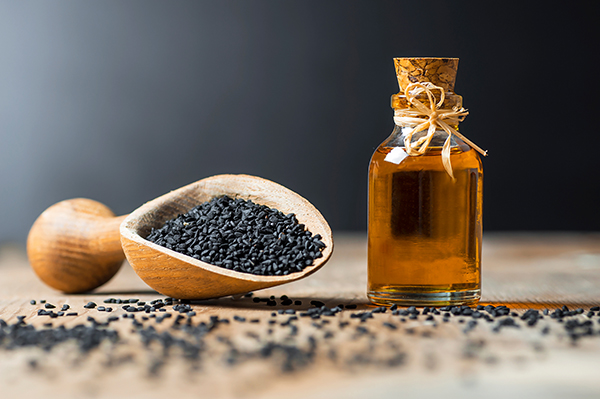6 Health benefits of grounding for autoimmune disease
11/28/2022 / By Zoey Sky

Earthing, or grounding, is a therapeutic technique that offers many benefits. According to some, it can also help protect against harmful free radicals and autoimmune diseases.
What is grounding?
Throughout the majority of evolutionary history, humans have slept on the ground, gone shoeless or worn footwear made from animal hides that allowed equilibration with the electrical potential of the earth.
However, these practices have been discarded as times advanced and many modern inventions made life easier. But some of these changes can be viewed as detrimental because people lost the pivotal energy transfer from the ground to the body.
Thankfully, the practice of grounding can help you enjoy certain health benefits.
Grounding or earthing is a therapeutic technique that involves different activities that help “ground” or electrically reconnect you to the earth. This practice relies on earthing science and grounding physics to explain how electrical charges from the earth can offer certain benefits.
There are different types of grounding, but all of them focus on helping you reconnect to the earth.
You can do this through either direct or indirect contact like:
- Lying on the ground, like in the grass at a park or on the sand at the beach
- Walking barefoot in the grass on your lawn or on a sandy beach
- Wading in water in a clear lake or swimming in the ocean
- Using grounding equipment like grounding socks, grounding bands and patches, grounding sheets or blankets and grounding mats
While direct contact with the earth is optimal, using grounding equipment can help if you live in an area with inclement weather conditions or if you want to practice grounding in clinical settings. (Related: Don’t like to meditate? Try joyful grounding.)
Dangers of free radicals
The ground represents a reservoir of free and mobile electrons or negative charges. These charges can help neutralize the positively charged free radicals, or reactive oxygen species (ROS), that can cause cell damage and result in disease and degeneration.
Free radicals like hydrogen peroxide are inherently unstable compounds that are both byproducts of aerobic metabolism and synthesized through different physiochemical and pathological states.
While free radicals can be beneficial, in excess they cause oxidative stress, which is linked to autoimmune disease and other chronic conditions like cancer, diabetes mellitus, ischemic diseases (like coronary artery disease) and neurodegenerative diseases such as Alzheimer’s.
Benefits of grounding
Grounding is a technique that doesn’t require expensive equipment and that offers benefits such as:
Blood sugar regulation
People with autoimmune diseases such as Graves’ disease and Hashimoto’s thyroiditis, psoriasis, rheumatoid arthritis or ulcerative colitis are at greater risk of developing Type 2 diabetes because of common mechanistic pathways.
Blood sugar dysregulation and insulin resistance are also common predisposing factors in the onset of autoimmune disease. Research has found that practicing grounding over a three-day period can help decrease fasting glucose among people with diabetes who have poor glycemic control.
Endocrine balance
The over-production of inflammation-inciting cellular messengers called pro-inflammatory cytokines are a hallmark of autoimmune rheumatic diseases. They can activate the hypothalamic-pituitary-adrenal (HPA) axis, which oversees your body’s stress response.
This can result in pro-inflammatory, autoimmune-exacerbating hormones overtaking anti-inflammatory hormones such as glucocorticoids, which can then cause an inflammatory cascade and tissue destruction.
Practicing grounding can help influence this often dysregulated hypothalamic-pituitary-adrenal-thyroid axis.
Blood viscosity
Studies suggest that the majority of autoimmune disorders like Behcet’s syndrome, inflammatory bowel disease (IBD) and systemic lupus erythematosus (SLE) are all accompanied by a greater risk of experiencing venous thromboembolism (VTE), which are blood clots that form in deep veins.
Experts think that this is due to disturbances in the immune system and the fact that systemic inflammation “modulates thrombotic responses by suppressing fibrinolysis, upregulating procoagulant and downregulating anticoagulant.” These processes favor clot formation and prevent the degradation of blood clots.
But study findings suggest that healthy volunteers who tried grounding for two hours had significantly less aggregation of red blood cells, indicating a substantial reduction in blood clotting potential. The grounded volunteers also possessed greater zeta potential, which is a marker for the ability of red blood cells to repel each other.
Decreased immune reactivity
Grounding has also been proven to produce measurable changes in immune hyper-responsiveness, including changes in white blood cell counts, concentrations of inflammation-mediating cytokines and other molecules linked to mounting inflammatory responses.
Grounding may help mitigate signs of inflammation like pain and swelling. Medical infrared imaging studies have also found that grounding may cause the rapid resolution of inflammation.
Autonomic balance
Data has also shown that grounding can shift the autonomic nervous system from the sympathetic fight-or-flight to parasympathetic rest-and-digest or breed-and-feed. In one study, volunteers in an earthing condition exhibited immediate deactivation of the former and concomitant activation of the latter.
The researchers observed that the participants who were grounded exhibited various parameters, like increased respiratory rate and stabilization of blood oxygenation. These suggested a metabolic healing response that requires enhanced oxygen supply.
Enhancing sleep quality and providing pain relief
When subjects are grounded during sleep with a conductive mattress pad, researchers recorded significant improvements in diurnal cortisol rhythm, trending toward normalization. This means cortisol, the stress and awakening hormone, reverted to the normal pattern of being high in the morning and low at night.
This normalizing effect on the circadian rhythm is important because prolonged stress, a common triggering factor in autoimmune disease, can trigger glucocorticoid receptor resistance. This results in an ongoing inflammatory response.
During the experiment, the research team discovered that grounding resulted in better sleep onset latency, or the time it takes to fall asleep at night. The practice also helped reduce sleep disruption and night-time pain.
Other studies suggest that grounded subjects exhibit less sleep dysfunction and significant relief from chronic joint and muscle pain compared to others in sham grounding conditions.
This is worth noting because people with sleep disturbances are at increased risk for developing an autoimmune disease, and impaired sleep may cause other adverse effects like pain.
Chronic pain is common among people with autoimmune diseases and grounding helped alter biomarkers of pain and immune system activity in one study of delayed-onset muscle soreness (DOMS) in men after eccentric exercise.
The scientists reported that participants in the sham group had a sharp spike in white blood cells and greater pain perception, which suggests an inflammatory reaction. Meanwhile, volunteers who were grounded had a slight decrease in white blood cells, significantly less pain and shorter recovery time.
If you are healthy enough to do so, practice grounding to improve sleep quality and relieve pain.
Visit Remedies.news to learn more about other natural remedies for aches and pains.
Watch the video below to learn about back, neck and shoulder pain relief exercises.
This video is from the Healthify channel on Brighteon.com.
More related stories:
Aromatherapy massage found to improve sleep quality in post-operative patients.
Boost brain health and relieve nausea and stomach issues with ginger, a versatile superfood.
Sources include:
Submit a correction >>
Tagged Under:
alternative medicine, autoimmune disease, blood sugar, earthing, Free radicals, grounding, health science, mind body science, natural cures, natural health, natural medicine, Naturopathy, pain relief, remedies, sleep, therapy
This article may contain statements that reflect the opinion of the author
RECENT NEWS & ARTICLES
COPYRIGHT © 2017 NATURAL HEALTH NEWS





















